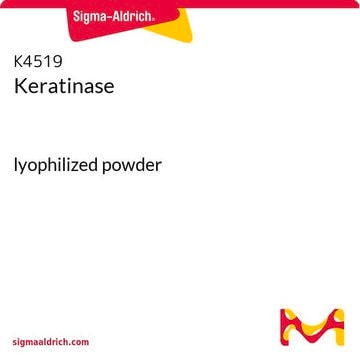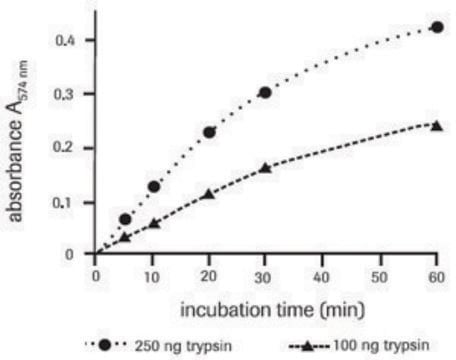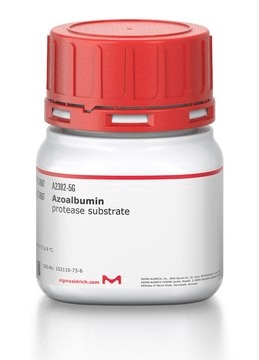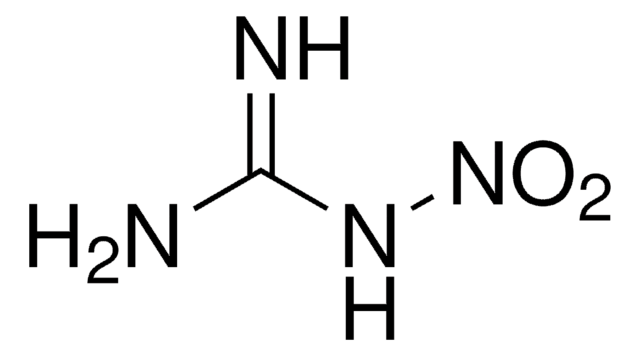Recommended Products
product name
Keratin azure, suitable for use as a protease substrate
Quality Level
form
solid
color
blue to very dark blue
suitability
suitable for protease substrate
application(s)
diagnostic assay manufacturing
hematology
histology
storage temp.
room temp
Looking for similar products? Visit Product Comparison Guide
General description
Keratin Azure is blue-dyed sheep wool that is made of (alpha) keratin.
Application
Keratin azure is commonly used for monitoring the degradation of (beta) keratin. It has been used as a substrate in the keratin utilization assay to assess keratinase degradation.
Storage Class Code
11 - Combustible Solids
WGK
WGK 3
Flash Point(F)
Not applicable
Flash Point(C)
Not applicable
Personal Protective Equipment
dust mask type N95 (US), Eyeshields, Gloves
Choose from one of the most recent versions:
Already Own This Product?
Find documentation for the products that you have recently purchased in the Document Library.
Customers Also Viewed
Production, characterization and application of keratinase from Streptomyces gulbargensis.
Syed DG
Bioresource Technology, 100, 1868-1868 (2009)
Karina Paula Preczeski et al.
Frontiers in bioengineering and biotechnology, 8, 71-71 (2020-03-03)
Technological processes mediated by microorganisms and enzymes are promising alternatives for treatment of recalcitrant residues. Keratinases hydrolyze keratin, the primary component of some wastes generated in many industrial activities. The present study was designed to evaluate strategies for obtaining keratinases
Keratinolytic activity of Streptomyces strain BA7, a new isolate from Turkey.
Korkmaz H
Annals of Microbiology, 53, 85-85 (2003)
Methods to Determine Enzymatic Activity (2013)
Our team of scientists has experience in all areas of research including Life Science, Material Science, Chemical Synthesis, Chromatography, Analytical and many others.
Contact Technical Service











